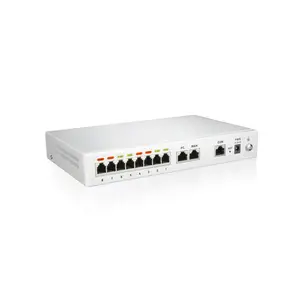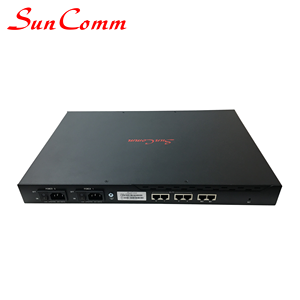SIP VoIP Gateway: Bridging Communication Platforms
The SIP VoIP Gateway is a pivotal component in modern communication technology, designed to bridge the gap between traditional telephony and Voice over Internet Protocol (VoIP) systems. It allows seamless integration of various communication channels, enabling businesses to enhance their efficiency and reduce costs. As organizations transition towards more advanced communication platforms, understanding the versatility and functionality of SIP VoIP Gateways becomes essential.
Types of SIP VoIP Gateways
SIP VoIP Gateways come in various types, tailored to meet different business needs. They can be categorized based on their functionality and application:
- Analog VoIP Gateways: Connect traditional analog phones to a VoIP system, allowing businesses to utilize existing hardware without needing a complete overhaul.
- Digital VoIP Gateways: Facilitate the connection of digital phone systems such as ISDN to IP networks, providing high-quality voice communications.
- Hybrid VoIP Gateways: Combine both analog and digital interfaces, offering flexibility for companies with diverse telecommunication systems.
- Session Border Controllers (SBC): Secure and manage VoIP traffic while ensuring interoperability between different VoIP protocols.
Applications of SIP VoIP Gateways
The applications of SIP VoIP Gateways are extensive, making them a vital tool for many types of organizations:
- Enterprise Communication: Facilitate internal and external communications, supporting remote work and collaboration.
- Call Center Operations: Enable efficient call management, routing, and recording functionalities.
- Service Providers: Allow telecom companies to offer VoIP services to customers, thereby expanding their product offerings.
- Unified Communication Systems: Act as a bridge for integrating various communication tools like video conferencing and messaging within a single platform.
Features and Advantages of SIP VoIP Gateways
Investing in a SIP VoIP Gateway presents numerous features and advantages that cater to organizations looking to optimize their communication systems:
- Cost Efficiency: Reduce telecommunication costs by leveraging Internet connectivity instead of traditional phone lines.
- Scalability: Easily scale communication systems to accommodate business growth without major infrastructure changes.
- High-Quality Voice Transmission: Enjoy clear and uninterrupted calls, thanks to advanced audio processing technologies.
- Interoperability: Seamlessly connect with various protocols and devices, ensuring flexibility across different platforms.
- Remote Access: Enable employees to connect from anywhere, enhancing productivity and collaboration through remote work capabilities.
How to Choose a SIP VoIP Gateway
Selecting the right SIP VoIP Gateway requires careful consideration of your business needs and technical requirements. Keep the following factors in mind:
- Compatibility: Ensure the gateway works with your existing telecommunication systems and meets your specific requirements.
- Scalability: Choose a model that allows for future growth in user numbers and traffic.
- Supported Features: Look for advanced features like call routing, voicemail, fax support, and remote access capabilities.
- Quality of Service (QoS): Select a gateway that offers QoS settings to prioritize voice traffic and enhance call quality.
- Vendor Reliability: Opt for reputable manufacturers with reliable support and warranty options to ensure long-term operation and service.

















































































































































































